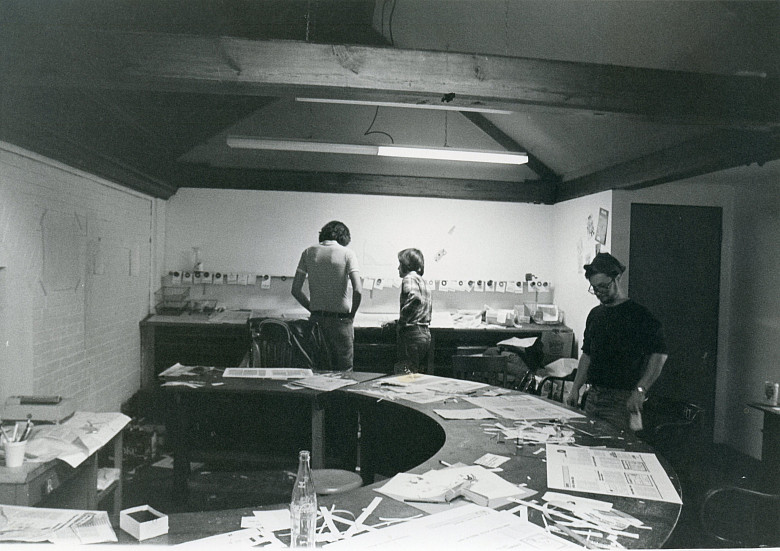Fridays with Fred - Round Table Recollections
Student organizations come and go, many distinct to their eras. The mandolin and banjo clubs of the late 19th century, the Student Association for the Study of Hallucinogens (STASH) of the 1960s, and, in the mid-1990s, the Cannabis Club, are notable examples. One organization with true staying power has survived and even thrived through economic downturns, civil and world wars, and two pandemics. Thousands of students have worked on it and many more thousands have revered, reviled, and discussed its contents over meals at Commons and while hanging out at the library. I’m talking about the “campus rag,” which began its historic life in 1853 as The Beloit College Monthly, before changing its name to The Round Table in 1875. Remarkably, it has held onto that moniker ever since. For many years, the Round Table billed itself as the second oldest college newspaper in the United States, and then, after another paper proved otherwise, the third oldest. We’re not really sure where the paper ranks, age-wise, but it is quite venerable.

In the fall of 1984, Coeditor Melanie Smith and I were the last Round Table editors to run the paper from offices in the Student Union (known today as the Smith Building). The college had converted the old gymnasium into the student union back in 1957, and by 1984 there was plenty of obvious wear and tear. The Round Table office and layout room perched high up on the north side, above the “ballroom,” once used for dances and movies. Through our tiny windows we gazed out on renovations at Pearsons Hall, where student union facilities and functions would move to the new Jeffris-Wood Campus Center after the new year. The Round Table would move there, too, along with bound backfiles of the paper and its actual long-serving “round table,” which sadly disappeared a few years later.
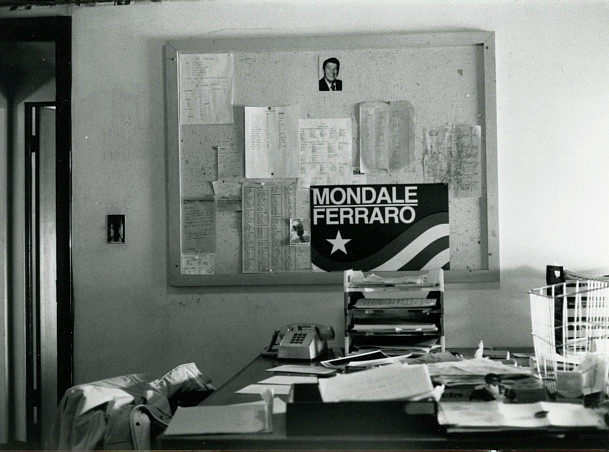
Attempting to write a penetrating editorial while the campus punk band practiced an un-regal sounding “God Save the Queen,” deafening the numerous pigeons which had taken up residence in the ballroom.
On layout night, battling an uncooperative wax machine which decided to wax both sides of our strips of copy and all of our fingers.
Discovering a missing “t” in the word Beloit and attempting to reinstate it via a surgical procedure using an X-acto knife and a blob of wax. Then, during printing, the “t” migrated to a headshot of President Roger Hull.
The photo “screener” malfunctioned and, despite valiant efforts, our first two issues featured photographs with the sparkling clarity of dense fog wafting from the Rock River over the ever-mysterious Indian Mounds.
Campus stories that fall included multiple “New Beloit Plan” proposals, designed to “make distinguished Beloit, more distinctive.” Beloit announced a groundbreaking student and faculty exchange with Fudan University in China. New professor, Clint McCown, proposed publishing the Beloit Fiction Journal, still going strong today. The football team had a fantastic season, winning the Midwest Conference, north division. Beloit students marched in Madison for “Take Back the Night,” sponsored a political poetry reading, and attended lectures on Apartheid and other world issues. I wrote a history of 1969’s Black Demands and an accompanying editorial, “Whatever Happened to Black Demands?” which generated some vigorous campus discussion. Like the New York Times and the Washington Post, Beloit’s Round Table endorsed Walter Mondale for President!
One evening, a disembodied voice penetrated through the brick walls and closed windows. I peered outside, where several well-dressed people milled about the parking lot down below, looking confused. I opened a window, poked my head out, and a woman spotted me and, in a powerful voice, asked, “Could you tell us where the Field House is?” I directed them and, a few hours later, rocked to “Wang Dang Doodle,” sung by the same woman. It was time for the annual Folk and Blues Festival and she was Chicago blues star, Koko Taylor.
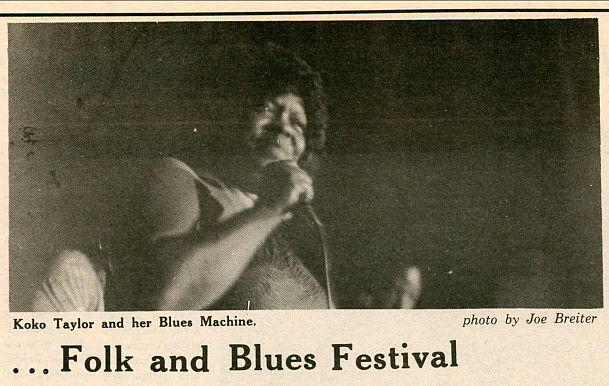
So many more memories – deadline night, praying that all of the paper’s ace reporters came through with their stories, delivering copy to the Beloit Daily News for typesetting by two sisters who seemingly typed a thousand words a minute, and, in the BDN breakroom, writing last minute stories for that semester’s parody issue, including one I entitled “Newsome Discovers Rare Pigeons,” about my friends, the ballroom denizens, whom I dubbed the “Headnodding Dullardophibius.”
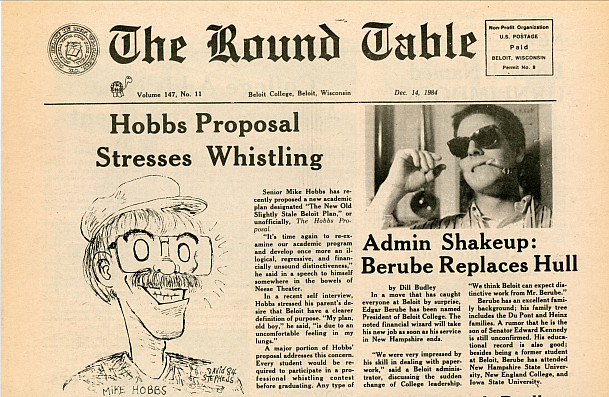
And, finally, my hair-raising experience with a Beloitian ghost. Fortunately, I lived to tell the tale.
It was late in the semester, around 2:30 a.m. We’d had a particularly challenging layout and I was the last person in the Union. I locked the door and trudged down the steep stairway to the ballroom, which was illuminated only by emergency lights. The worn-out floorboards creaked and cracked and popped as I crossed to the other side. A few Headnodding Dullardophibiuses rustled in their roosts and one let out a mournful coo that shivered the hair on the back of my neck. I pushed through the door, tiptoed down the steps to the next floor and, just as my feet hit the landing where the door led to the snack bar, there was a sudden whir of sound and swirl of flashing lights as the Union jukebox came to life:
“Hold me, hold me
And never let me go until you’ve told me, told me
What I want to know and then just hold me, hold me
Make me tell you I’m in love with you…”
Apart from jumping out of my socks, I stood rooted to the spot. I peered through the window into the gloom and saw nothing except the dim outline of tables and chairs and the shining aura of a lovelorn music machine. I recognized the song, “Hold Me, Thrill Me, Kiss Me,” a top ten hit by Mel Carter in 1965.
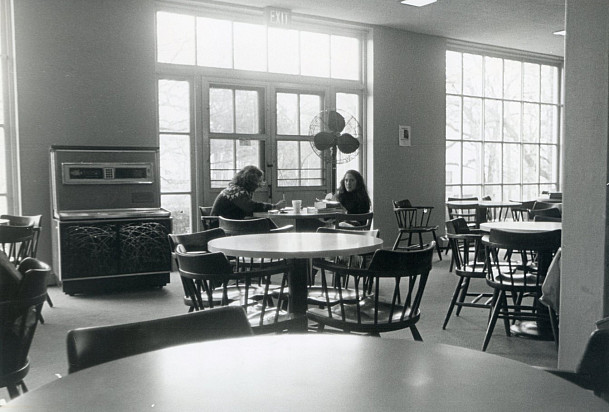
Perhaps the Student Union jukebox knew that its days were numbered and that at least one Beloiter would long remember its plea.
